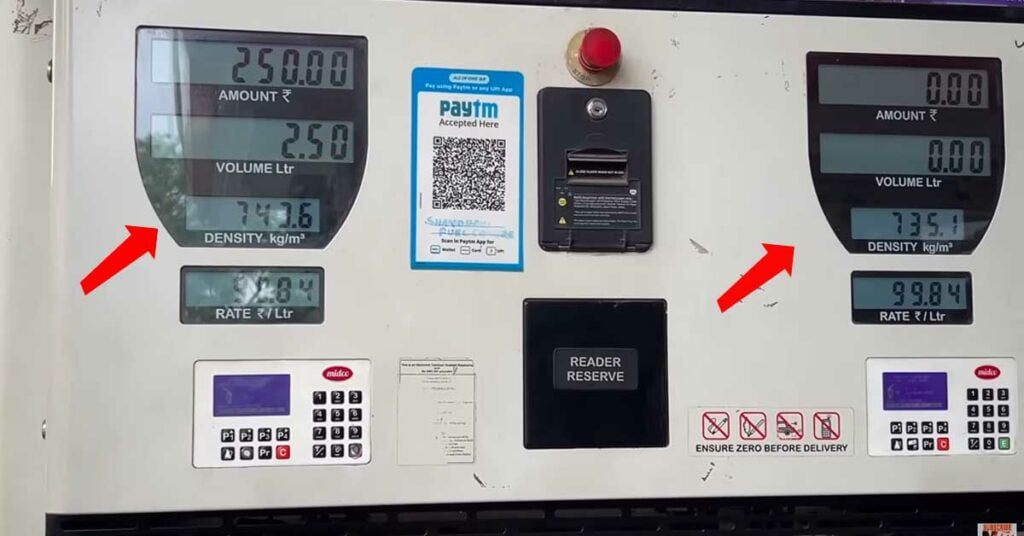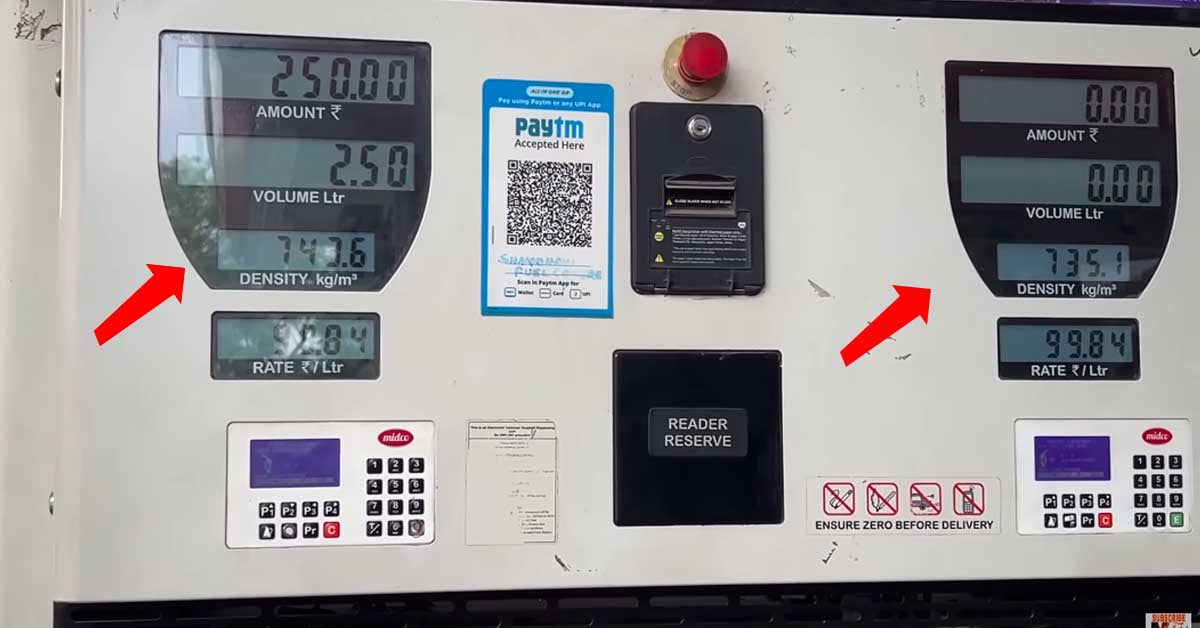People who are into automotive technology always keep an eye out for the density of the fuel while getting their vehicles filled up at the fuel stations.
A common question that a lot of people ask is if the quality of petrol is bad if the density is lower than 750 kg/m3. Generally, the government has set the standard range of density within which petrol must feature on every petrol pump. For petrol, this range is 730-770 kg/m3. For diesel, this number ranges from 820-860 kg/m3. The quality of fuel within these ranges is considered ideal that will impact the fuel economy and performance of your car positively. But what happens when the value of density lies outside this range?
You may also like: Top 3 Tips To Protect Your Bike From Rust Before Monsoons
You may also like: 11 Misconceptions We All Have About Rust on Cars
Is Petrol With Lower Density Bad?
The YouTuber is a popular figure who keeps bringing informational videos related to the world of automobiles. This time around, he explains what should you do in case the petrol pump shows density values outside the abovementioned range. Essentially, it is a bit dubious if the values are either higher or even lower than the standard range. In both cases, it is advisable to not get fuel filled from that petrol pump. If you go regularly to that petrol station and can vouch for their quality, then you could get in filled irrespective of the density value.
You may also like: 7 Things to Check When Filling Petrol/Diesel in Your Vehicle
The main reason is the fact that it is one can’t be sure what the problem is. Many a time, it is possible that the petrol pump operators forgot to test the density every morning and this is why the meter reads 0 or 700 kg/m3. The value must be measured every day at the fuel stations because it depends on the temperature. Every day, depending on the temperature, the density of the fuel ought to be different.
You may also like: Use This Trick When Parking Your Car In Direct Sunlight

That could be the first reason why it shows 0. Another reason for low density could actually be the mixing of petrol with water. Unfortunately, that is a practice that some fuel pump owners follow for some extra profit. But that is not good for the engine which is why you must avoid such petrol pumps. Make sure that the range is exactly what is mentioned above because that is the ideal quality of petrol for the vehicles.


